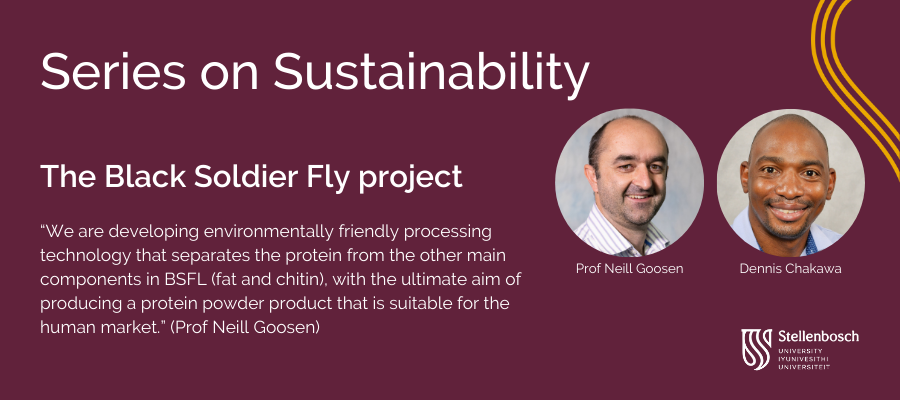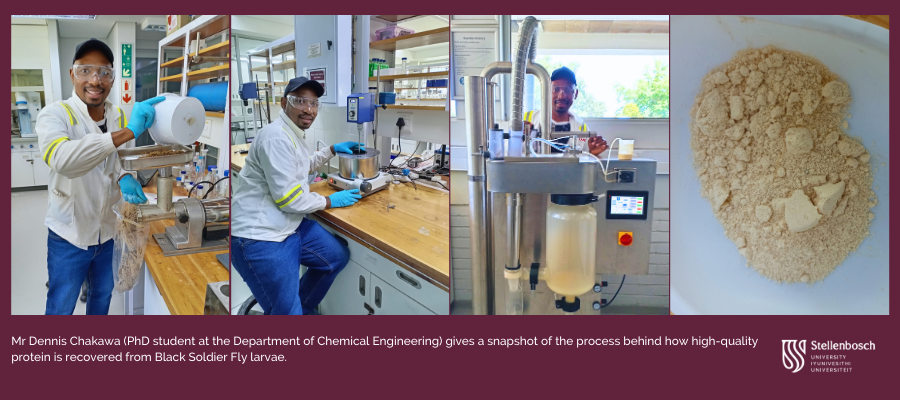
The production of protein remains crucial for feeding a growing world population. The cultivation of Black Soldier Fly larvae (BSFL) is an emerging protein production system that has a lower environmental footprint than some other terrestrial protein production systems. However, current technology and consumer resistance prevent this sustainable protein source from being marketed directly for human food.
As part of the Department of Chemical Engineering’s sustainability research, a postgraduate project is currently underway that focuses on the recovery of high-quality protein for human consumption from BSFL. Prof Neill Goosen elaborates: “We are developing environmentally friendly processing technology that separates the protein from the other main components in BSFL (fat and chitin), with the ultimate aim of producing a protein powder product that is suitable for the human market.” The postgraduate student involved is Dennis Chakawa.
So far, the project has produced several positive outcomes. Methods have been developed that successfully separate the protein fraction from the fat and chitin, utilizing scalable techniques. After protein separation, high salt levels and dark pigments have been successfully removed, resulting in a powdered product that is easy to package and distribute. The researchers have also registered a South African patent on the process.
Although BSFL is not going to make up a significant part of global protein production any time soon, the impact of the research should not be underestimated. According to Goosen developing the technology now is crucial for several emerging industry players, and it will help to maintain South Africa’s position at the forefront of the growing insect farming industry. “We want to contribute to the growth trajectory of the local industry, and for that reason, we are fully committed to this project. Hopefully, we can soon introduce our product into both the South African and international food industries.”




